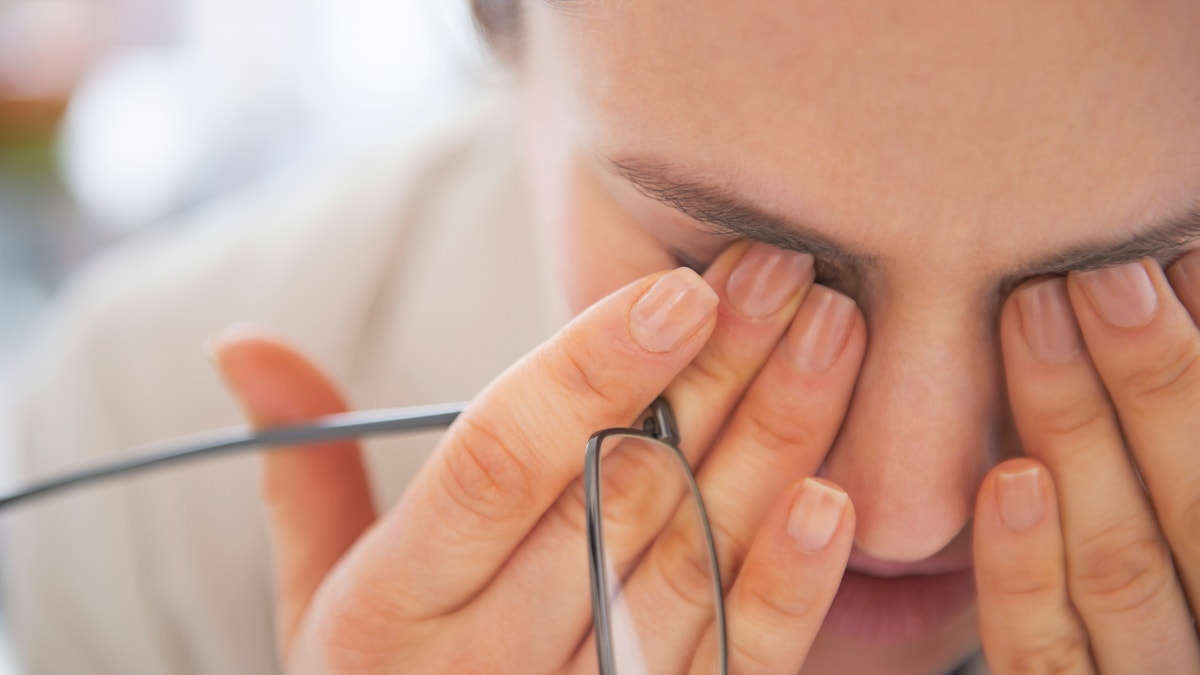
Closeup on tired business woman with eyeglasses (iStock)
Cancer-related fatigue may make it harder for some survivors of Hodgkin lymphoma to hold down a job long after they finish with treatment, a German study suggests.
Five years after treatment for this rare blood cancer, about one in five survivors suffered from severe fatigue, the study found. Just 57 percent of fatigued survivors were working or pursuing an education, compared with 84 percent of survivors that weren't experiencing this chronic exhaustion.
"Today, Hodgkin lymphoma is a curable malignancy for the majority of our patients," said study co-author Dr. Stefanie Kreissl of the University Hospital of Cologne.
"Therefore, we face a continuously growing number of predominantly young survivors at high risk for long-term impairments in their quality of life," Kreissl added by email.
Hodgkin lymphoma starts in white blood cells called lymphocytes, which are part of the immune system. It can start almost anywhere in the body, but often begins around the chest, neck or armpits.
Early symptoms can include fatigue, fever and chills.
For the current study, researchers followed about 4,500 Hodgkin patients who completed quality of life assessments before treatment and for up to nine years afterwards.
Participants ranged in age from 18 to 60, and 44 percent were female.
At the start of the study, 37 percent of participants who completed quality of life assessments reported severe fatigue and they were 33 percent less likely than those without fatigue to be working or in school, the study found.
After five years, about 20 percent of survivors had severe fatigue and they were 71 percent less likely to be working or in school than other survivors, researchers report in the Journal of Clinical Oncology.
Perhaps not surprisingly, extreme fatigue was also associated with worse financial problems.
Researchers also looked at the connection between fatigue and how long patients survived without tumors growing. When patients had the most effective cancer treatment, fatigue didn't appear to influence this. But fatigue was associated with less time without tumor growth for people who received standard, or less effective therapy.
There was a similar pattern for survival odds. Fatigue didn't influence this for people who received the most effective treatment but longevity appeared shorter when patients with extreme fatigue also received standard or less effective therapies.
One limitation of the study is that researchers relied on patients to accurately report their employment status and level of fatigue, the authors note.
Another shortcoming is the potential for unemployment to cause symptoms of fatigue, making it difficult to distinguish between fatigue caused by cancer or by other circumstances, the authors also point out.
Even so, the findings suggest that doctors and patients need to pay closer attention to the potential for disabling fatigue to have a lasting impact on quality of life and prevent survivors from returning to their normal routines, the authors conclude.
The findings add to a growing body of evidence suggesting that Hodgkin survivors may suffer fatigue even years after they finish cancer treatment, said Dr. Jens Ulrich Rueffer, head of the German Fatigue Society in Cologne.
"These findings are not really surprising but confirming the severity of this problem even years after treatment," Rueffer said by email. "Somewhat surprising is the fact that the patients being affected have the perception that there is only a little improvement over time; very often there is nearly none."
